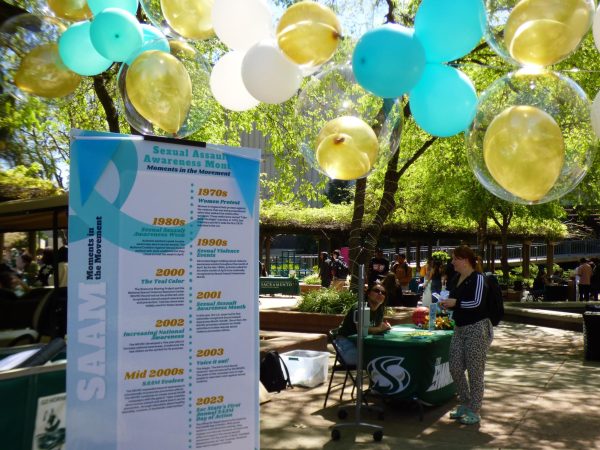Sick? Just Drink H20
May 13, 2009
We’re all going to need a spoonful of sugar to help our water go down if recent dumping trends continue.
An Associated Press investigation found at least 271 million pounds of pharmaceutical chemicals in American waterways.
But before everyone starts panicking in the streets, just know that the chemicals are heavily diluted.
There’s no reason to stop drinking water, according to a press release from Ken Johnson, vice president of the Pharmaceutical Research and Manufacturers of America.
“The amounts detected in untreated water used for drinking have been very small – the equivalent of a single cube of sugar dissolved in two and a half million gallons of water,” Johnson said.
Johnson dismissed the AP’s investigation, claiming that industrial chemicals account for 92 percent of the chemicals in our water.
“(The Associated Press investigation) failed to note the absence of adverse health effects found at the trace levels detected,” Johnson said.
Some would disagree.
Biologist Francesco Pomati said, “Water that’s been contaminated by these chemicals poses a potential hazard for particular human conditions, such as pregnancy or infancy.”
Pomati conducted a study on how trace amounts of substances like lincomycin can cause cancer in human beings to grow rapidly.
The AP investigation also noted how no one is keeping tabs on how much pharmaceutical chemicals are being released.
Anyone hungry for fish?
Fish across America are being fortified with pharmaceutical drugs, according to a March 26 AP article.
The research was funded by the Environmental Protection Agency. The EPA openly admits that the pharmaceutical chemicals in our water have yet to be harmful. Still, the government agency has several concerns with pharmaceutical contamination in our environment as a whole.
“The risks posed to aquatic organisms and to humans are unknown, largely because the concentrations are so low,” according to the EPA website.
In spite of these concerns, the government is doing nothing to preempt the pharmaceutical companies from continuing to contaminate our water.
Under the Resource Conservation and Recovery Act, the 271 million pounds of pharmaceutical chemicals in our water were disposed of legally – because the chemicals in our water aren’t classified as “hazardous waste” by the EPA.
The EPA is sitting back, studying the effects these chemicals have on us and our environment. It would be nice to see the EPA take a more active role in looking over the shoulders of these pharmaceutical companies.
Actually keeping records of what drug manufacturers dispose of would be an ideal first step for the EPA. The fact that no one has been keeping records is something quite atrocious. Regulating waste products would only be precocious.
But Johnson’s dismissive attitude toward the damage that pharmaceutical chemicals can cause to humanity leaves me feeling supercalifragilisticexpialidocious.
David Loret de Mola can be reached at [email protected]











































































































































